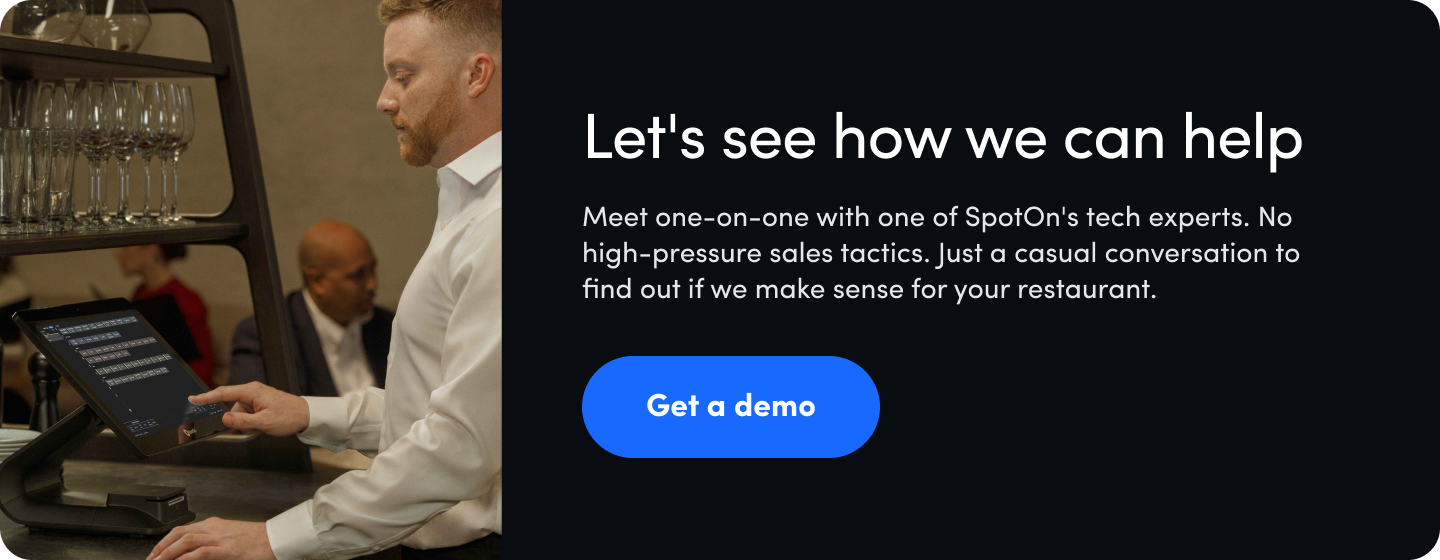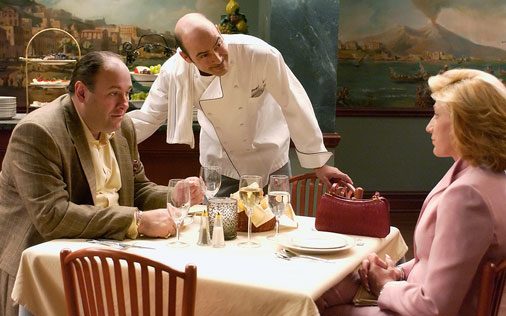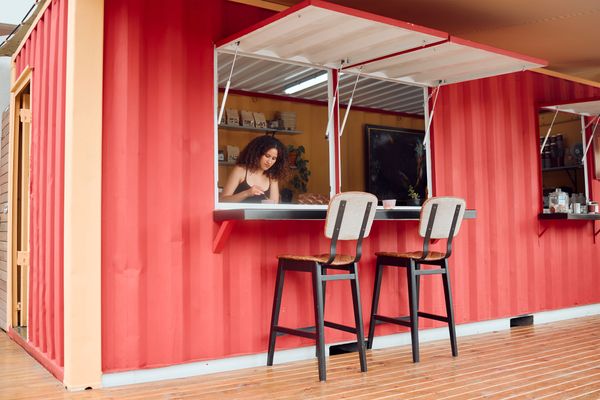25 years ago, the world met Tony Soprano, the gabagool-eating, New Jersey mafioso protagonist of HBO’s The Sopranos. Soprano and his circle of consigliere experience peaks and valleys across the show’s six seasons, but one constant remains—they’re hungry. When Carmela Soprano’s leftover ziti is tapped, and cannoli and sfogliatelle won’t cut it, there’s one place that offers refuge and bucatini in equal measure. Whether old or nuovo, it’s Vesuvio.
Co-owned and operated by third-generation restaurateur Arthur Bucco, the head chef, and his wife, Charmaine, who runs the front-of-house, Vesuvio has experienced its fair share of literal and metaphorical fires. While the moral quandary of accepting mob-tainted funds might be niche, many of the Bucco’s challenges are universal. Nuovo Vesuvio sees high staff turnover, a frequently updated menu, the logistical challenges of private parties, and slow guest traffic.
Since the 2000s, when The Sopranos reigned, tech advances have changed the way people consume content, receive therapy, and operate their restaurants. It’s 2024, and people stream multiple episodes at a time. Dr. Melfi and Tony meet via BetterHelp. And Nuovo Vesuvio could benefit from a restaurant POS and tech partner committed to building a more profitable, sustainable business. No matter who’s boss.
1. A reservation system to help the front-of-house manage bookings, not chaos
Nuovo Vesuvio has many strengths—an extensive wine list, show-stopping braciole—but retaining front-of-house staff isn’t one of them. Whether it’s Adriana La Cerva, Charmaine, or later Élodie and Martina, Vesuvio’s front-of-house staff often have other concerns on their minds. With a restaurant reservation system, hostesses can monitor reservations and table turns, leaving notes so staff can easily identify VIPs without relying on memory and institutional knowledge.
Like any dedicated restaurateur, Artie Bucco values guest feedback. By managing reservations online, he could send an automatic post-meal text to guests asking them to rate their experience. People talk, and if a certain mob wife finds your atmosphere depressing, décor aging, and menu stale, then better to hear constructive feedback straight from the source rather than through the grapevine.
Across the seasons, Nuovo Vesuvio sees cycles of boom and bust. When they’re crowded, the front-of-house could implement a waitlist app to fill up tables without compromising the guest experience. During quieter periods, online reservations can help attract new guests and retain them by collecting customer data for remarketing.
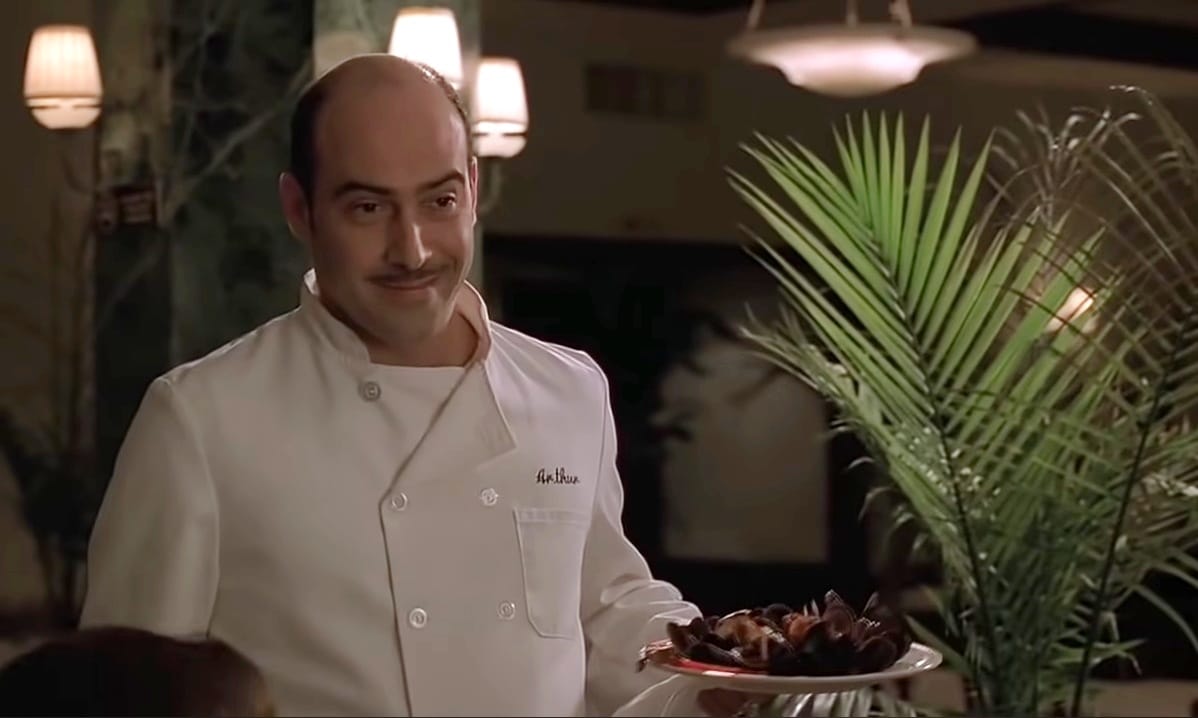
2. Working capital (not that other kind)
When the old Vesuvio burns down, The Buccos' future as restaurant owners becomes uncertain. Artie faces a familiar dilemma among operators: in an industry where margins are slim, where does emergency funding come from? Not everyone has—or wants—a Tony Soprano to step in and fill the funding gap. With access to working capital loans for small business, restaurants can replace equipment, expand the patio, or renovate the dining room without resorting to unsavory funds.
If Charmaine Bucco applied for a capital loan on an online dashboard, it could have saved the Buccos a lot of professional and personal anguish while their insurance claim was under review. Plus, with automated payment from a fixed percentage of daily credit card sales, there’s no need for bundles of cash (the preferred payment of the alternative loan provider).
3. Like to party? Invoicing that makes private events easy
Private parties can be a lucrative revenue stream for restaurants. But they can also be a logistical nightmare, forcing operators to track down payments and overwhelming the kitchen staff. In North New Jersey, there is no shortage of occasions worth celebrating. Birthdays, welcome-home-from-prison parties, celebrations for becoming a made man—they’re all great reasons to eat cavatelli and veal parmesan.
With a virtual terminal, The Buccos could invoice guests and take pre-payments ahead of time, lessening the headache night of. There will always be certain guests who prefer to pay in cash, of course, but providing the option would help the already time-strapped operators stay organized and cash flow positive. Invoicing tools can also simplify the payment process for catering gigs, like the silent auction fundraiser at the Soprano’s spacious home.
4. Create a buzz with marketing tools
When you’re branded as a mob hangout, it brings in business. Then again, you’re a mob hangout with all the risks that entails. The restaurant industry is already fickle without the constant risk of becoming a crime scene. Marketing software could help Artie expand his restaurant’s reach to attract more law-abiding guests.
Nuovo Vesuvio’s fine dining aesthetic is a point of pride for Artie Bucco. When Tony suggests discounts and promotions to get people through the door, Bucco finds the strategy anathema. However cultivating an email list and offering exclusive benefits to loyal guests can have a positive impact on profits while staying consistent with the restaurant’s brand. Promotions like oyster happy hour, discounted wine evenings, or prix-fixe supper club, would all align with the Nuovo Vesuvio brand and bring in some much-needed guest traffic when tables sit empty. And they might convince guests to return to Nuovo Vesuvio instead of the super popular Da Giovanni’s. If you think “waste management” is a competitive business, try restaurants.
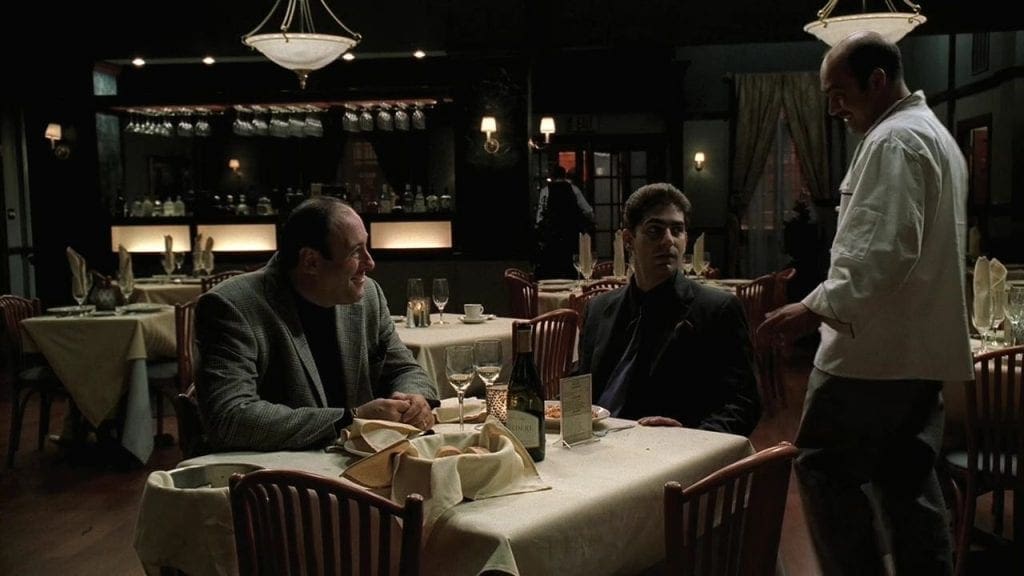
5. Restaurant operators already work hard. Insightful data lets you work smarter
Artie Bucco is a “warm and convivial host,” per the New Jersey Zagat guide. Very little gets past Charmaine Bucco, who stays laser-focused on Nuovo Vesuvio’s to-do list while Artie Bucco gets distracted. Together, they espouse the eternal dilemma of the hospitality industry: how to stay passionate and guest-focused while still keeping your eye on the ball?
Artie and Charmaine Bucco had to wing it. For modern operators, restaurant tech provides reporting data to shape business decisions and admin-slashing restaurant management software. Charmaine Bucco isn’t just a restaurant owner, she’s a mother of three who would benefit from daily sales and PMIX reports, accessible from anywhere.
Running a restaurant can feel like repeatedly ignoring distractions that never seem to abate. It’s a frequent downfall for the easily distracted Artie Bucco. Spending less time on admin, like team scheduling, tip distribution, and inventory management, could help reignite Artie’s passion for cooking and get him back in the kitchen with the imported guanciale, where he’s at his best.
Detailed sales and labor reporting also provides the Buccos with a paper trail as to who was working, when, and what guests were coming in. In the off chance an employee is committing a large-scale credit card scheme and AMEX flags your restaurant, it doesn’t hurt to keep a record.
With labor management tools, the Buccos could ensure adequate staffing to cover private events, lull periods, and busy Friday nights (when people aren’t at Da Giovanni’s). Optimized staffing would help them keep their labor costs in check while maintaining the level of service they’re known for (if your name happens to be Soprano).
In The Sopranos, mob life is stressful. Restaurant tech doesn’t have to be.
Not every day is chantarelles and fresh-picked san marzanos at Nuovo Vesuvio. Staff drops the ball, marinara sauce spills, and the guest experience dips to sub-standard. Is it a good or mediocre restaurant? Who’s to say? Artie Bucco rediscovers his passion for cooking, the soul of Nuovo Vesuvio is restored, and everyone eats better because of it by the sixth and final season. If only they had implemented some hardworking restaurant tech, the Buccos could have expanded to Vesuvio Due by season three—and minimized all that agita.
